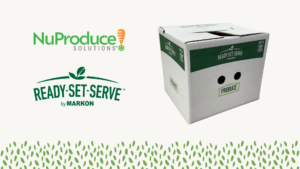Q: What are the risks of foodborne illnesses when using ice machines and beverage dispensers?
A: The risks of foodborne illness in a foodservice environment aren’t anything new. But have you considered ‘drinkborne illnesses’? Ice machines and beverage dispensers are often overlooked as a serious cause of illness in foodservice establishments—even healthcare or school operations.
Humidity levels, warm temperatures, high sugar concentrations, hard to clean crevices, and poor handling and cleaning practices make these machines prone to microbial and viral contamination. Some pathogens—like Norovirus, Salmonella, Shigella, Listeria, Hepatitis A, and E. coli—may be looming in contaminated ice machines and beverage dispensers.
Regular, thorough dismantling and cleaning of all parts using the chemicals and process recommended by the equipment manufacturer can greatly reduce the risk of infection. Additionally, ensure that gaskets provide a tight seal to keep moisture from building up inside the machine, and regularly look for (and fix) damages to the machine, its tubing, the water filter, or backflow prevention device. Any water leaking from cracked tubing may provide a breeding ground for flies or cockroaches.
The fact that ice is a frozen food does not eliminate its potential risk for contamination. A regular, thorough, deep clean is required for ice machines. Failure to do so can lead to the growth of a slime called biofilm—a matrix of mold or bacteria and their secretions —which is very difficult to remove. For this reason, many manufacturers recommend a deep clean every 6 months in addition to routine cleaning and sanitizing. Some largescale operations find it useful to hire contract companies to perform these deep cleans to ensure a thorough clean.
Illness on the Rocks
Don’t let ice lead to illness. A properly cleaned ice machine is imperative, as is staff handling of ice. Just like with foods, it is imperative to maintain sanitary ice-handling practices. Here are some ways to minimize the risk of a foodborne illness from ice:
- Follow all cleaning and sanitizing recommendations from the machine manufacturer.
- Train staff on detailed, frequent, and thorough cleaning and sanitizing plans.
- Create instructions on how to dismantle and reassemble removable parts, what chemicals to use, the concentration of the chemicals, how to identify mold and dust, who is doing the work, the frequency of cleaning, who will verify the work, and how this will be recorded.
- Clean hands and wipes before using or cleaning equipment.
- Store clean, unbreakable ice scoops in appropriate holders. Inspect regularly, drains, tubing, gaskets, joints, seams, backflow device, water filter, ice scoops, nozzles, faucets and trays, and correct any defects right away.
- Remove all standing liquids from underneath and inside machines to avoid creating breeding grounds for pests such as flies or cockroaches.
- Hire an external contractor to regularly clean machines (helpful if you have a large operation).




























